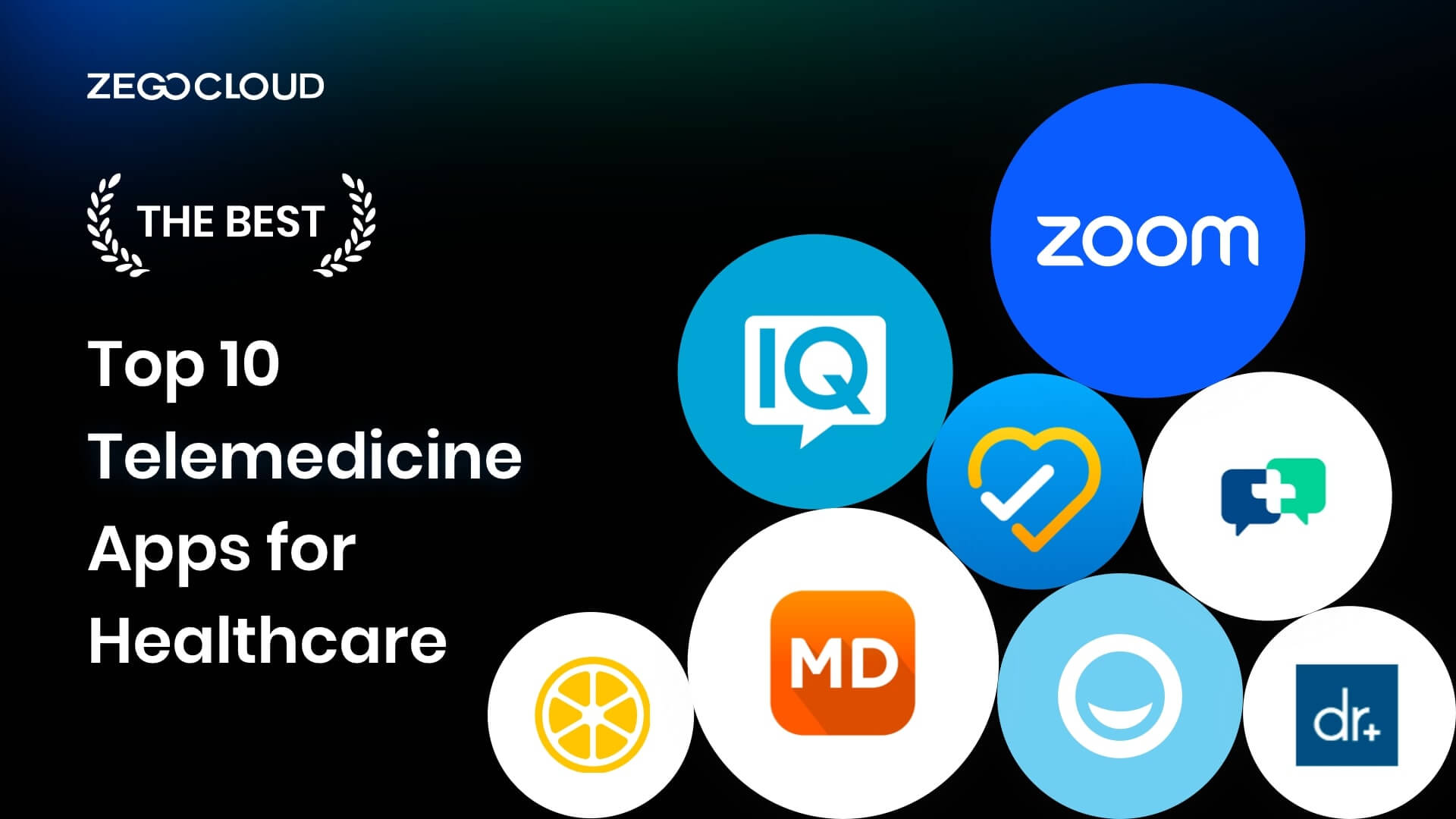In today’s fast-paced healthcare landscape, telemedicine app has become crucial, providing remote access to healthcare services with ease. As demand for these solutions grows, a variety of apps offering virtual consultations, prescription management, and more have entered the market. These apps are changing the way we interact with healthcare providers, thanks to their innovative technology and user-friendly designs. Let’s dive into the top 10 telemedicine apps that are at the forefront of this transformation.
What is a Telemedicine?
Telemedicine refers to the delivery of healthcare services remotely using telecommunications technology. Through telemedicine, patients can consult with doctors and healthcare providers via video calls, phone calls, or messaging platforms. This method enables healthcare professionals to diagnose, treat, and monitor patients from a distance, making healthcare more accessible, especially for those in rural or underserved areas.
Telemedicine can be used for various purposes, including routine consultations, follow-up appointments, mental health therapy, and even chronic disease management. It has gained significant traction in recent years, particularly during the COVID-19 pandemic, as it offers a safe alternative to in-person visits, reducing exposure to illnesses while ensuring continuous care.
Why We Need a Telemedicine App?
The need for telemedicine apps has become increasingly evident in today’s fast-paced and digitally connected world, offering several compelling advantages that address both contemporary challenges in healthcare delivery and patient demands. Here are key reasons why telemedicine apps are essential:
- Improved Access to Healthcare: Telemedicine apps provide vital healthcare services to people in remote or underserved areas where medical facilities may be scarce or inaccessible. This is particularly beneficial for patients with mobility issues, chronic conditions, or those living in rural locations.
- Convenience: These apps offer the convenience of receiving medical advice, consultations, and prescriptions without the need to travel or wait in long queues. Patients can easily access healthcare services from the comfort of their homes at any time.
- Cost-Effectiveness: By reducing the need for physical office visits, telemedicine can lower healthcare costs for both providers and patients. It saves on travel expenses and reduces the indirect costs associated with taking time off work.
- Reduced Exposure to Pathogens: In the context of infectious diseases or pandemics, telemedicine apps minimize the risk of spreading infections by limiting physical contact between healthcare providers and patients.
- Continuity of Care: These apps enable better management of chronic conditions through regular monitoring and follow-up consultations, ensuring that patients receive continuous care without frequent visits to healthcare facilities.
- Mental Health Support: Telemedicine provides an accessible platform for individuals seeking mental health services, offering privacy and removing the stigma associated with visiting mental health clinics.
- Efficient Use of Healthcare Resources: By streamlining the consultation process, telemedicine apps can help healthcare providers manage their time more effectively, allowing them to cater to more patients.
- Personalized Care: With the use of AI and data analytics, telemedicine apps can offer personalized healthcare recommendations, reminders, and follow-ups, enhancing the overall quality of care.
Best 10 Safe and Reliable Telemedicine App Lists
With the ongoing COVID-19 pandemic, telemedicine apps have significantly increased as they provide a safe and reliable way for people to receive medical care at home. Here are the 10 best online doctor apps:
1. Teladoc
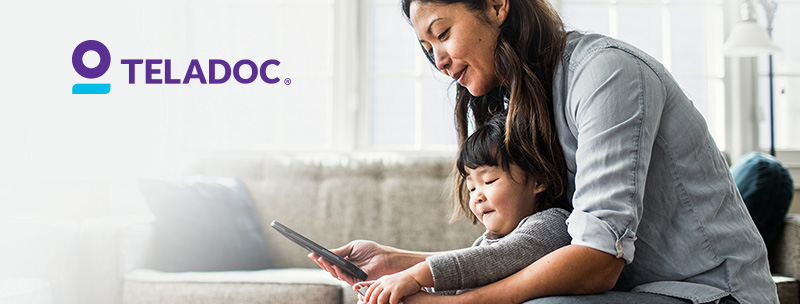
Teladoc is a telemedicine app that allows users to consult with licensed physicians 24/7 for non-emergency medical issues. Users can use the app to consult with doctors for common conditions such as colds, flu, and allergies and receive a diagnosis and treatment plan.
Teladoc also offers a “Virtual Care Anywhere” feature, which allows users to consult with a doctor through video or phone call and receive a prescription if needed. The app also has a symptom checker to help users understand their condition and guide them through consulting a doctor.
Pros:
- Wide range of services including general health, mental health, dermatology, and more.
- Available 24/7 with quick response times.
- Highly rated for ease of use and convenience.
Cons:
- Limited availability of in-network providers.
- Some users report high consultation fees without insurance.
- Occasional wait times during peak hours.
2. MDLIVE
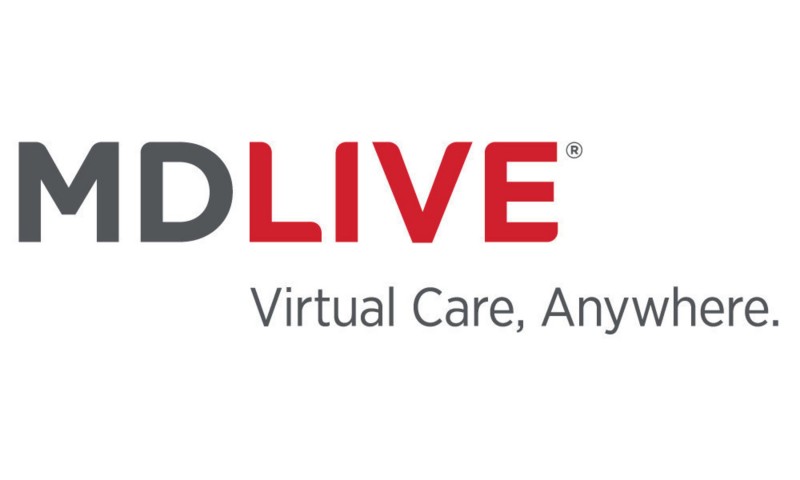
MDLIVE provides virtual consultations for various medical issues with board-certified physicians, psychologists, and dermatologists. The app allows users to consult with doctors through video, phone, or secure messaging and receive a diagnosis and treatment plan. MDLIVE also offers a symptom checker and medication reminder feature. The app also provides follow-up consultations if needed.
Pros:
- Offers medical, dermatological, and behavioral health services.
- Available 24/7 with easy scheduling.
- Integrates with major insurance plans.
Cons:
- Some users report long wait times.
- Limited to U.S. residents.
- Certain conditions may still require an in-person visit.
3. Amwell
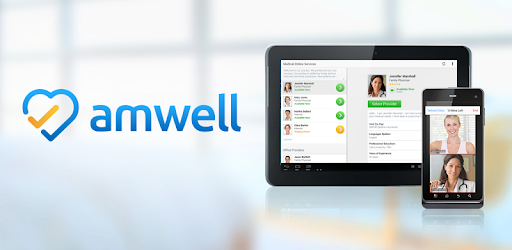
The Amwell app allows users to consult with board-certified physicians and specialists, such as psychologists and dietitians, for various medical issues. Users can consult doctors through video, phone, or secure messaging to receive a diagnosis and treatment plan.
The app also offers a symptom checker and medication reminder feature. Amwell also has a “Group Visit” feature, which allows users to consult with a doctor and a group of people with similar medical conditions.
Pros:
- Broad spectrum of services including pediatrics, therapy, and nutrition.
- 24/7 availability with multiple language support.
- Accepts many insurance plans.
Cons:
- Some users experience connectivity issues during video calls.
- Higher costs for those without insurance.
- Limited international availability.
4. Lemonaid

Lemonaid is a telemedicine app specializing in virtual consultations for minor illnesses and prescriptions. Users can consult doctors for various medical issues, including common conditions such as UTIs and colds, and receive a diagnosis and treatment plan. The app also offers a symptom checker and medication reminder feature. Lemonaid also provides the ability to refill an existing prescription through the app.
Pros:
- Simple, user-friendly interface.
- Affordable pricing for consultations and prescriptions.
- Focus on primary care and mental health services.
Cons:
- Limited range of services compared to competitors.
- Not available in all states.
- Requires an initial consultation for prescriptions.
5. PlushCare
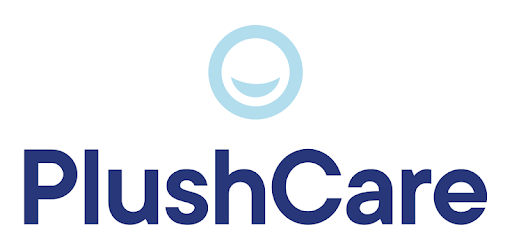
PlushCare is a telemedicine app that offers virtual consultations with board-certified physicians for various medical issues. Users can consult with doctors through video or phone calls and receive a diagnosis and treatment plan.
PlushCare also offers a symptom checker and medication reminder feature. The app also has a feature that allows users to schedule follow-up consultations directly through the app.
Pros:
- Provides primary care and mental health services.
- High patient satisfaction ratings.
- Convenient appointment scheduling.
Cons:
- Higher cost for those without insurance.
- Limited specialty care options.
- Not available in all locations.
6. Doctor on Demand
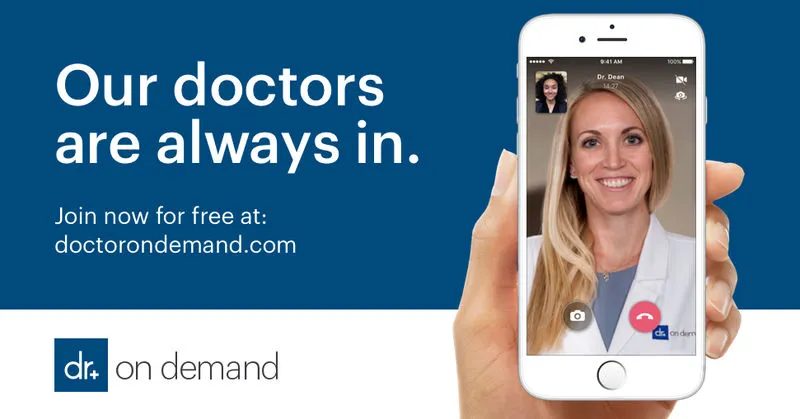
Doctor on Demand is a telemedicine app that allows users to consult with licensed physicians, psychologists, and lactation consultants for various medical issues. Users can consult with doctors through video or phone calls and receive a diagnosis and treatment plan.
The app also offers a symptom checker and medication reminder feature. Doctor on Demand also has an “Urgent Care” feature, allowing users to consult a doctor for urgent medical issues.
Pros:
- Comprehensive services including urgent care, therapy, and preventive health.
- Transparent pricing structure.
- No subscription required for access.
Cons:
- Higher fees for specialty care.
- Occasional long wait times.
- Limited to U.S. residents.
7. InTouch Health
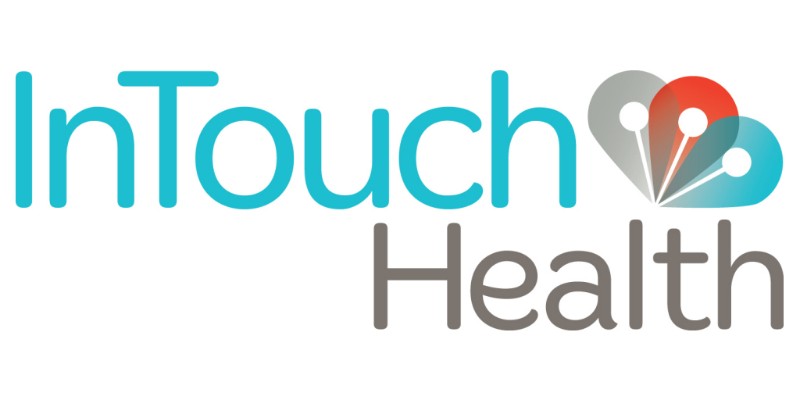
MDChat is a telemedicine app developed by the American Medical Association (AMA) that allows users to consult with licensed physicians for a wide range of medical issues, including COVID-19-related questions? Users can consult doctors through secure messaging and receive a diagnosis and treatment plan. MDChat also offers a symptom checker and medication reminder feature. The app also provides additional resources such as articles, videos, and local health services.
Pros:
- Focus on enterprise telehealth solutions.
- High-quality, secure video conferencing.
- Customizable for various healthcare settings.
Cons:
- Primarily targeted at healthcare providers, not individual patients.
- Higher cost due to enterprise focus.
- Requires technical setup and integration.
8. Teladoc Kids
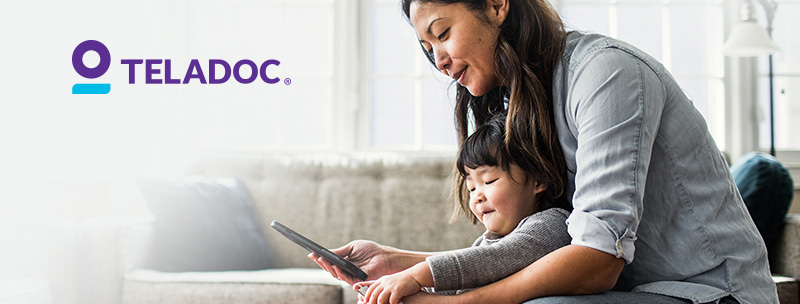
Teladoc Kids is a particular version of the Teladoc app that focuses on children and their families. Parents can consult with pediatricians for various medical issues related to children and receive a diagnosis and treatment plan. The app also offers a symptom checker and medication reminder feature.
Pros:
- Specializes in pediatric care.
- 24/7 access to board-certified pediatricians.
- Convenient for parents with young children.
Cons:
- Limited to pediatric services.
- Not available in all regions.
- Potential wait times during peak hours.
9. TelmedIQ
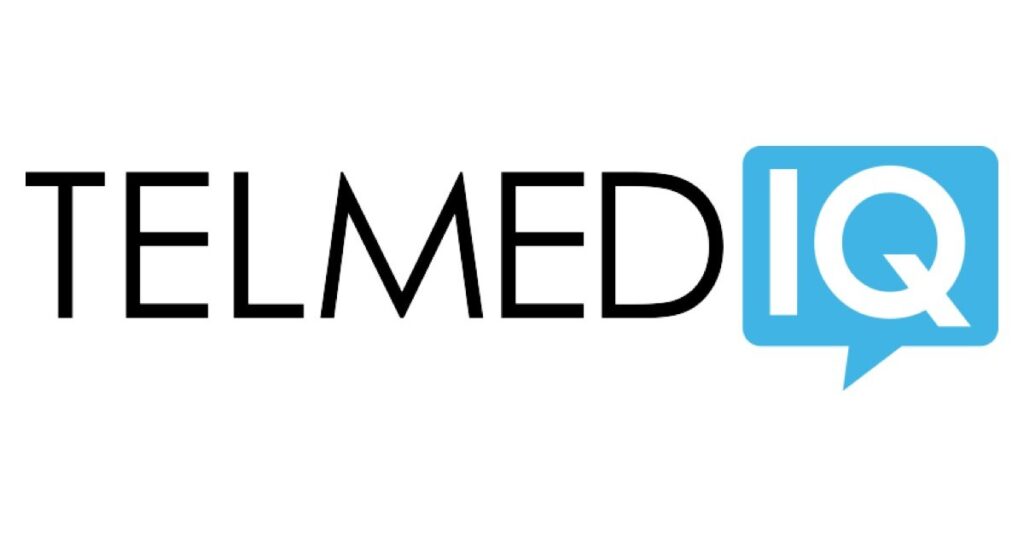
This app provides virtual consultations for patients with chronic conditions like diabetes and heart disease. The app allows users to consult with doctors for various medical issues, including managing chronic conditions and receiving a diagnosis and treatment plan.
The app uses data from patients’ wearables, such as fitness trackers, to provide doctors with a complete view of patients’ health and monitor their condition more closely. Patients can use the app to access their medical records and communicate with doctors, including scheduling appointments and sending and receiving messages.
Pros:
- Secure communication platform for healthcare providers.
- Integrates with existing EHR systems.
- Enhances collaboration and care coordination.
Cons:
- Not designed for direct patient use.
- Requires integration with healthcare systems.
- Potentially high setup costs.
10. Medici
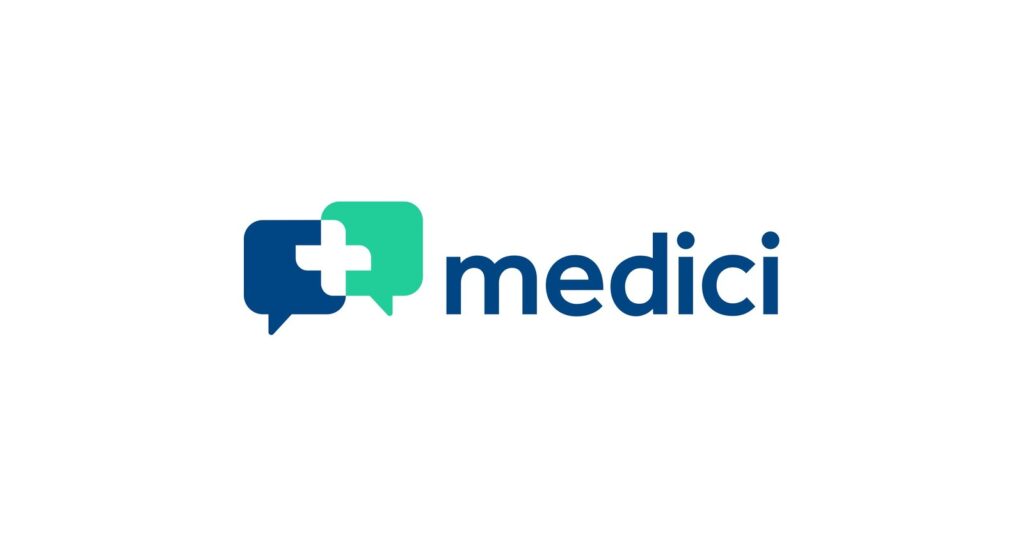
Medici is another best telemedicine app that offers virtual consultations with specialists in several fields, including family medicine, cardiology, psychology, and more. Users can also receive a diagnosis and treatment plan. The app allows users to consult with specialists through video or phone calls and receive a diagnosis and treatment plan. Also, the app offers a symptom checker and medication reminder feature.
Medici also has a feature that allows users to schedule follow-up consultations directly through the app. The app also allows patients to access their medical records and communicate with their doctors, including scheduling appointments and sending and receiving messages. Medici also covers access to specialists who may be difficult to find in local areas, which can be particularly helpful for rural areas.
The apps mentioned above have been developed by reputed health institutions, have strict security and data privacy regulations, and are reliable options for patients seeking medical care remotely. It’s always important to consult a doctor before starting a new medication or changing an existing treatment plan.
Pros:
- Offers text, call, and video consultations.
- Available for a wide range of medical specialties.
- Allows patients to communicate with their own doctors.
Cons:
- Limited availability depending on location.
- Higher costs without insurance.
- Requires provider participation.
How Can ZEGOCLOUD Enhance Telemedicine App Development
ZEGOCLOUD provides a suite of powerful real-time communication solutions that can significantly enhance the functionality and user experience of telemedicine apps. By integrating ZEGOCLOUD’s SDKs and APIs, telemedicine app developers can leverage advanced communication features to deliver high-quality healthcare services remotely.
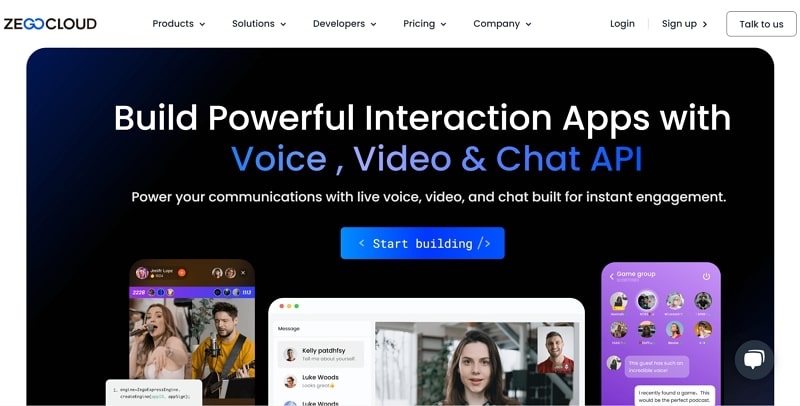
Here are several ways ZEGOCLOUD can be utilized in telemedicine app development:
1. High-quality video and Audio Calls
ZEGOCLOUD enables telemedicine apps to offer crystal-clear video calls and audio calls, ensuring seamless communication between patients and healthcare providers. This is essential for accurate diagnosis and effective consultation.
2. Real-Time Data Sharing
With ZEGOCLOUD, telemedicine apps can facilitate real-time sharing of medical records, images, and test results during consultations. This helps doctors make informed decisions quickly and enhances the overall efficiency of remote consultations.
3. Multi-Party Conferencing
ZEGOCLOUD supports multi-party video conferencing, which is useful for virtual team consultations, family meetings with healthcare providers, and specialist consultations. This feature allows multiple participants to join the call seamlessly.
4. Interactive Features
Telemedicine apps can integrate interactive features such as screen sharing and whiteboarding using ZEGOCLOUD. These tools are valuable for explaining complex medical conditions, and treatment plans, and providing educational resources to patients.
5. Secure Communication
ZEGOCLOUD ensures that all communications are encrypted and secure, complying with industry standards such as HIPAA. This is crucial for maintaining patient confidentiality and trust in telemedicine services.
Final thoughts
As telemedicine grows and becomes more prevalent, healthcare providers and patients must access reliable and secure telemedicine apps. The above apps have proven to be among the best telemedicine apps available. They will remain top choices for healthcare providers and patients in 2025. ZEGOCLOUD is the perfect Platform for building telemedicine apps. Sign up now to receive 10,000 free minutes per month.
Read more:
FAQ
Q1: What apps do doctors use for telemedicine?
Doctors use various telemedicine apps to conduct virtual consultations. Popular ones include Teladoc, Amwell, MDLive and Doctor on Demand for healthcare applications. These platforms allow doctors to interact with patients via video calls, messaging, and file sharing.
Q2: Who is the biggest telemedicine company?
Teladoc Health is considered one of the biggest telemedicine companies globally. It offers virtual healthcare services across a wide range of specialties, including primary care, mental health, and dermatology. Teladoc has expanded its presence internationally and acquired several other telemedicine companies.
Q3: Is the telehealth app free?
Some telehealth apps offer free consultations, especially for initial assessments or basic services, but most require payment for follow-up appointments, specialized consultations, or additional features. Insurance coverage can also affect whether a telehealth app is free or requires a copay. Popular apps like Amwell and MDLive often have a fee for consultations, but some insurance plans cover these services.
Q4: What is the best telemedicine?
The best telemedicine platform depends on the needs of the patient or healthcare provider. Some of the top-rated options include Teladoc and Doctor on Demand.
Q5: Can you use a telehealth app if you don’t have insurance?
Yes, you can still use telehealth apps even if you don’t have insurance. Many telehealth platforms offer consultations on a pay-per-visit basis, allowing individuals without insurance to access healthcare services. The cost of consultations may vary depending on the provider and the service, but some platforms offer affordable rates. Always check the pricing structure on the telehealth app before scheduling an appointment.
Let’s Build APP Together
Start building with real-time video, voice & chat SDK for apps today!









